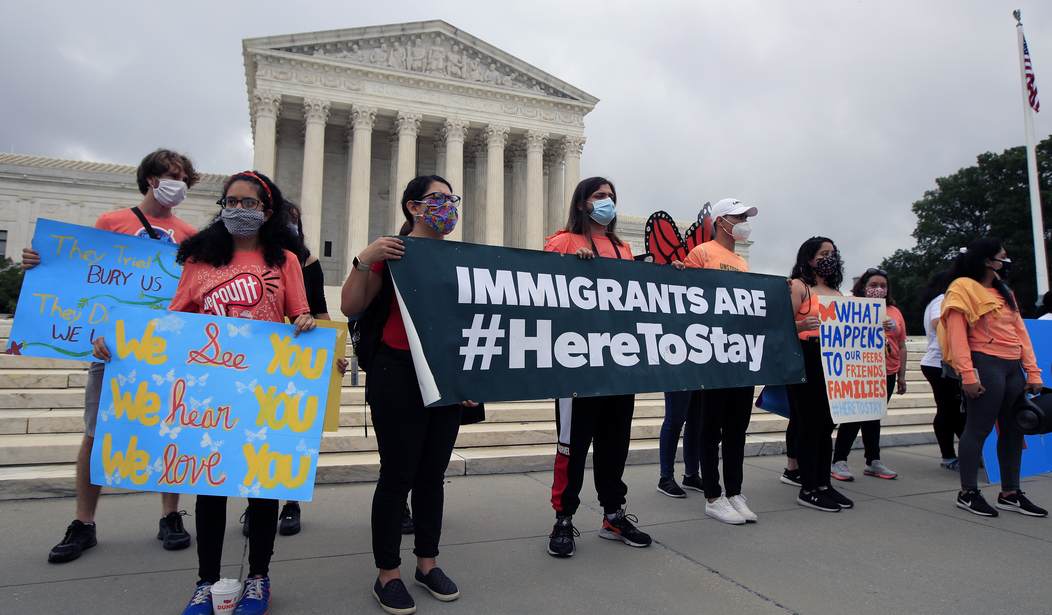Early on Friday Texas Attorney General Ken Paxton sued the Biden Administration in federal court in the Southern District of Texas.
The Southern District of Texas is based in Houston, but there are six “divisions” in different courthouses in the geographic area consisting of the Southern District.
Taking a page out of the Democrat activist playbook, Texas filed its suit in the Victoria Division — Victoria, Texas — which is southwest of Houston. In my opinion, this is pretty much just a matter of judge-shopping by the Texas Attorney General — no different than when liberal activist groups filed lawsuits over Pres. Trump Executive Orders in San Francisco and Portland.
There are only two federal judges in the Victoria Division, so one of those two will be assigned the case.
Senior Judge John D. Rainey was appointed to the bench by Pres. Bush 41 in 1990.
The other judge who presides in the Victoria Division is Judge Drew Tipton, appointed to the bench by Pres. Trump in 2020. From his background, Judge Tipton looks quite “reliably” conservative.
The factual allegations of the complaint include that Texas suffers increased financial costs as a result of the failure of the Executive Branch to follow federal law with regard to deportation proceedings. Allowing illegal aliens –as they are called by statute, and as Texas refers to them in the complaint — to remain in Texas increases health care costs and educational expenses that the taxpayers of Texas are made to bear.
Texas also raises the issue of the Department of Homeland Security having signed a mutual assistance agreement, one part of which obligated DHS to consult with Texas before taking any action that would increase the number of removable or inadmissible aliens inside the United States. According to the terms of that agreement, this includes adopting policies that woul have the effect of:
- “reducing, redirecting, reprioritizing, relaxing, lessening, eliminating, or in any way modifying immigration enforcement”;
- “pausing or decreasing the number of returns or removals of removable or inadmissible aliens from the country”; or
- “declining to decrease the number of lawful, removable, or inadmissible aliens residing in the United States.”
The agreement provides that DHS is to provide Texas with 180 days written notice of any intended change in policy, and that disputes shall be resolved in a federal district court in Texas.
An interesting aspect of the Agreement is that DHS made factual admissions that altering immigration enforcement would do immediate and concrete harm to Texas. The agreement was written in anticipation of a change in federal policy by a change in administrations, and attempts to deal the feds a losing hand vis-a-vis Texas in an legal proceeding where Texas would seek — and now is seeking — injunctive relief.
Texas is not directly challenging any Executive Order issed by Biden — the are challenging an Memorandum issued by Acting DHS Secretary Brad Pekoske on January 20 “directing an immediate pause on removals of any noncitizen with a final order of removal (except as noted below) for 100 days.” There are four classes of exceptions to the “pause”, but they are extremely narrow.
By focusing on the agency memoranda, Texas is able to raise issues related to DHS compliance with various provisions of administrative law having to do with “rulemaking” such as the failure to provide a “notice and comment” period, acting in an “arbitrary and capricious manner”, etc.
The “Prayer for Relief” requests that the January 20 Order be set aside, and that DHS be ordered by the Court to follow the immigration law statutes as written. Federal law requires the Attorney General to remove an alien from the United States within 90 days of a “Final Order of Removal” being entered. By pausing removals of such individuals for 100 days, the Memorandum makes compliance with federal statutory law impossible. On that basis Texas argues that the Memorandum violates the Constitutional obligation to see that the laws are faithfully enforced, and directs the Attorney General and other federal officials to violate the Constitution.
There is no question that Texas has been preparing this lawsuit for quite a long time. The agreement between Texas and DHS was clearly drafted with an eye on future policy changes that make happen with a change in Presidential Administrations, with terms meant to stake the deck on Texas’ favor from the start.
Texas has chosen what seems likely to be a very friendly courthouse within which to file the complaint.
The practical difficulties with this type of action, even if injunctive relief is granted by a district court judge, is having a means that can effectively compel DHS and DOJ to actually move bodies across the border and out of the country. There are other legal avenues that individuals set for removal can avail themselves of under immigration laws. The Trump Administration made such efforts more difficult such as not entertain facially flawed “refugee” claims, but it is certain the Biden Administration will reverse those policies. Such claims create a new set of procedural issues that can forestall deportation until they are resolved. The Trump administration dealt with the issue by requiring refugee claimants to made their applications for refugee status while outside the U.S. The Biden administration will certainly allow them to be made once again by illegal aliens who have found their way inside the U.S.
A hearing should take place next week on the motion for injunctive relief that Texas has filed.
More to come.














Join the conversation as a VIP Member